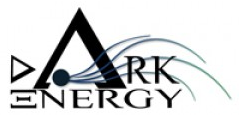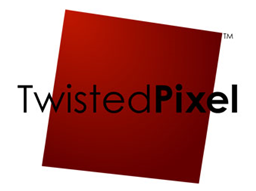A game engine is a software framework primarily designed for the development of video games and generally includes relevant libraries and support programs such as a level editor. The "engine" terminology is akin to the term "software engine" used more widely in the software industry.
RenderWare is a video game engine developed by British game developer Criterion Software.

Havok is a middleware software suite developed by the Irish company Havok. Havok provides a physics engine component and related functions to video games.

Bink Video is a proprietary file format for video developed by Epic Games Tools, a part of Epic Games.
SpeedTree is a group of vegetation programming and modeling software products developed and sold by Interactive Data Visualization, Inc. (IDV) that generates virtual foliage for animations, architecture and in real time for video games and demanding real time simulations.
Shin'en Multimedia is a German independent video game developer. Based in Munich, the company was founded in 1999 by former members of the demoscene group Abyss and is an official third-party developer for Nintendo. They develop games primarily for the Nintendo Switch, some non-Nintendo platforms such as the PlayStation 4 and the PlayStation 5, and previously for the Wii U, Wii, Nintendo 3DS, Nintendo DS, Game Boy Advance, and Game Boy Color.

Telekinesys Research Limited (TR), doing business as Havok Group, is an Irish software company founded on 9 July 1998 by Hugh Reynolds and Steven Collins, based in Dublin, Ireland, and owned by Microsoft's Ireland Research subsidiary. They have partnerships with Activision, Electronic Arts, Nintendo, Xbox Game Studios, Sony Interactive Entertainment, Bethesda Softworks and Ubisoft.

Teyon S.A. is a Polish video games developer, producer, and publisher. Founded in 2006, the company has two offices in Poland and one in Tokyo, Japan, with three development teams.
The seventh generation of home video game consoles began on November 22, 2005, with the release of Microsoft's Xbox 360 home console. This was followed by the release of Sony's PlayStation 3 on November 17, 2006, and Nintendo's Wii on November 19, 2006. Each new console introduced new technologies. The Xbox 360 offered games rendered natively at high-definition video (HD) resolutions, the PlayStation 3 offered HD movie playback via a built-in 3D Blu-ray Disc player, and the Wii focused on integrating controllers with movement sensors as well as joysticks. Some Wii controllers could be moved about to control in-game actions, which enabled players to simulate real-world actions through movement during gameplay. By this generation, video game consoles had become an important part of the global IT infrastructure; it is estimated that video game consoles represented 25% of the world's general-purpose computational power in 2007.

Dark Energy Digital was a privately owned video game developer and publisher based in the United Kingdom. It was formed from members of Blade Interactive, which continues to operate as a separate company. On 28 September 2007, following the public announcement of Hydrophobia, it was announced that a deal had been made between Blade Interactive and Total Asset Limited and was to become a publisher in its own right and publish its own titles. On 19 March 2012, it was announced the company had closed due to low sales of Hydrophobia.
Umbra is a graphics software technology company founded 2007 in Helsinki, Finland. Umbra specializes in occlusion culling, visibility solution technology and provides middleware for video games running on Windows, Linux, iOS, PlayStation 4, Xbox One, PlayStation 3, Xbox 360, Wii U, handheld consoles, and other platforms. In 2021, Amazon acquired Umbra.
Engine Software is a Dutch video game developer, located in Doetinchem, Netherlands, which specialized in handheld video games and digital platforms until 2011. In the period after (2011-present) they have become more active and known for high-end ports and adaptations of games to modern consoles, mobile, PC and streaming services like Stadia and Luna. Some of the best known games they have worked on include Puzzle Quest for the Nintendo DS, Terraria for PlayStation 3, PlayStation 4, PlayStation Vita, Xbox 360, Xbox One and Wii U, Killer7 Remastered for PC, Ni No Kuni: Wrath of the White Witch for Nintendo Switch and No More Heroes / No More Heroes 2 for Nintendo Switch.

indiePub Entertainment, Inc. was a publisher of video games based in Cincinnati, Ohio, United States.

Twisted Pixel Games, LLC is an American video game developer based in Austin, Texas. Originally a contractor, Twisted Pixel releases games based on its own intellectual properties such as The Maw and 'Splosion Man. The company uses its own proprietary engine, known as Beard, to power its games. On October 12, 2011, it was announced that Twisted Pixel had become part of Microsoft Studios. However, Twisted Pixel separated from Microsoft, and became an independent company again on September 30, 2015. In November 2021, the company became a subsidiary of Oculus Studios.

Machinarium is a puzzle point-and-click adventure game developed by Amanita Design. It was released on 16 October 2009 for Microsoft Windows, OS X, Linux, on 8 September 2011 for iPad 2 on the App Store, on 21 November 2011 for BlackBerry PlayBook, on 10 May 2012 for Android, on 6 September 2012 on PlayStation 3's PlayStation Network in Europe, on 9 October 2012 in North America and on 18 October 2012 in Asia, and was also released for PlayStation Vita on 26 March 2013 in North America, on 1 May 2013 in Europe and on 7 May 2013 in Asia. Demos for Windows, Mac and Linux were made available on 30 September 2009. A future release for the Wii's WiiWare service was cancelled as of November 2011 due to WiiWare's 40MB limit.

Havok Vision Game Engine is a discontinued, cross-platform, 3D game engine originally authored by Trinigy and later acquired by Havok. It was first released in 2003, and saw its final release in 2014. As of its eighth version, available target platforms were Microsoft Windows, Xbox 360, PlayStation 3, Nintendo Wii and Wii U, iOS, Android, Sony's PlayStation Vita, and most major browsers.
Fork Particle is a computer graphics visual effects modeling and software development kit (SDK) developed and sold by Fork Particle, Inc. Fork Particle uses its real time particle system technology to simulate visual effects or particle effects such as CGI explosions, fire, rain, smoke, dust, etc. Fork Particle is used in video games and visual simulation software such as a flight simulator. It has been licensed to game developers for Windows, macOS, Linux, PlayStation 3, PlayStation 4, Xbox 360 and Xbox One.
Nicalis, Inc. is an American video game developer and publisher based in Santa Ana, California. The company focuses primarily on indie games and has developed and published both original games as well as ports of existing games. Nicalis was founded in 2007 by Tyrone Rodriguez, a game designer and former game journalist. In 2017, Nicalis announced that they had acquired SuperVillain Studios and Cowboy Color.

Majesco Entertainment Company is an American video game publisher and distributor based in Hazlet, New Jersey. The company was founded as Majesco Sales in Edison, New Jersey in 1986, and was a privately held company until acquiring operation-less company ConnectivCorp in a reverse merger takeover, becoming its subsidiary and thus a public company on December 5, 2003. ConnectivCorp later changed its name to Majesco Holdings Inc. on April 13, 2004.
Game development kits (GDK) are specialized hardware and software used to create commercial video games for game consoles. They may be partnered with game development tools, special game engine licenses, and other middleware to aid video game development. GDKs are typically not available to the public, and require game developers to enter an agreement, partnership, or program with the hardware manufacturer to gain access to the hardware. As console generations pass, development kits often get sold through websites like eBay without repercussions. This is often because the console manufacturers discontinue certain development programs as time passes.







